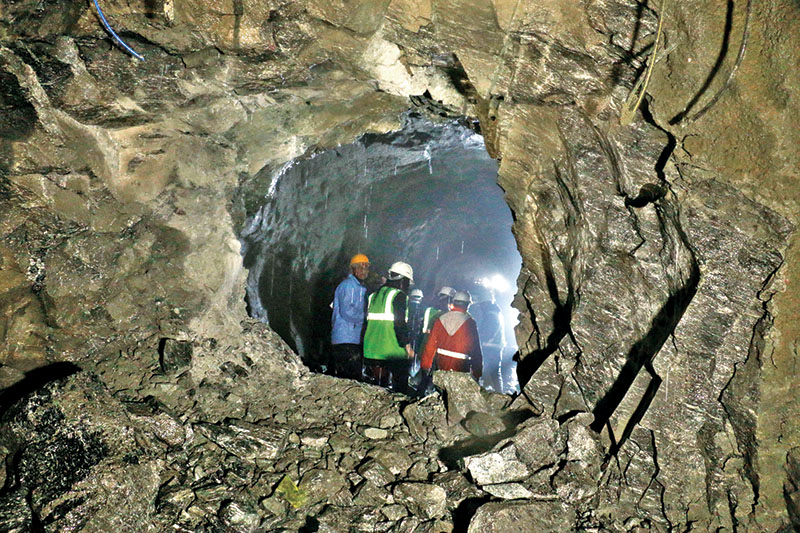Geological difficulties slowing tunnel excavation work
Kathmandu, July 6
The Melamchi Water Supply Development Board has said it may take additional few months to supply water supply to Kathmandu Valley due to geological problem in tunnel excavation.
According to the board, though it has applied all possible measures, tunnel excavation is still running below 20 metres per day.
Executive Director at MWSDB Ramchandra Devkota said they were not certain when the project would be able to supply water as tunneling in weak rock mass had posed difficulties.
“It is almost certain that the project will miss its October deadline due to difficulties in tunnel excavation,” Devkota told The Himalayan Times, adding that they were also unable to set a new deadline as it is uncertain when the tunnel excavation work would be completed. He said more than 2.5 km of the 27 km tunnel has yet to be excavated. A few days ago, the board had confirmed that it will not be able supply water to Kathmandu Valley by October this year. The Melamchi project’s first deadline expired in 2007 and second in 2016. The project deadline was then extended to October 2017.
Given the current rate of tunnel excavation, it may still take four months to complete tunnel excavation work. According to the project, it will take another three months to complete the remaining work after tunnel breakthrough.
Started in 21 December 2000, the Melamchi Water Supply Project is a project assisted by the Asian Development Bank, which aims to reduce the problems of drinking water scarcity in the Valley.
The Melamchi project envisages supplying 510,000,000 litres of water per day to the Valley from the Melamchi, Yangri, and Larke rivers of Sindhupalchowk district.
Kathmandu Upatyaka Khanepani Limited is the only organisation that supplies water to the 2,700,000 people living in the Valley.
The current daily demand of water in Kathmandu Valley is around 370,000,000 litres, while daily supply stands at 110,000,000 litres per day.
Of the currently supplied 110,000,000 litres of water per day, KUKL admitted that 30 to 40 per cent of the water leaks through years old water supply pipelines built during the Rana regime.






